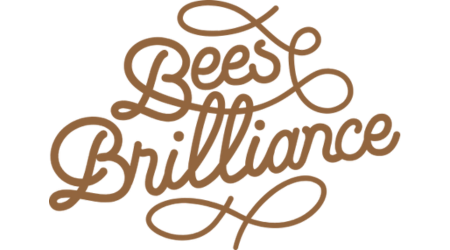Other than my hand sanitiser, my lip balm is my most used product. My loyal lip balms go everywhere with me; I have one in my bag, car and bedside table. It took me years of searching, trialling and testing to find what works best for me and my smoochers. Many a handbag, pocket and car cupholder have resulted in melted lip balm sacrifices. I even once tried to revive one in the freezer (p.s it didn't work :().
Whether you prefer the stick, the squeeze or the tin, the flavour, the tint or the scent there are loads of choices for the savvy lip balm aficionado. I'll share the lessons of my misspent lip balm youth - but I'd love to see your tips and tricks in the comments below too.
Texture Is Key
Too soft and you use it up in a week, too hard and it doesn't deposit enough product on your lips. Finding the right texture is all about the lipids; oils, waxes and fats that make up a high percentage of the ingredients in any lip balm. For instance, our Bees Brilliance Fruity Lip Rescue uses a plethora of naturally derived oils and waxes;
- Ricinus Communis (Castor) Seed Oil
- Copernicia Cerifera (Carnauba) Wax
- Hydrogenated Castor Oil
- Cera Alba (NZ Beeswax)
- Helianthus Annuus (Sunflower) Seed Oil
- Shorea Stenoptera Seed (Illipe) Butter
- Rubus Idaeus (NZ Raspberry) Seed Oil
- Sambucus Nigra (Elderberry) Oil
- Actinidia Chinensis (NZ Kiwifruit) Seed Oil
So. Many. Lipids!!
Why? Because different oils and waxes have varying hydrating, protecting, antioxidant and melting point strengths. Just like the perfect cup of tea, it's all about sourcing the best quality ingredients and getting the ratios just right for you.
My advice? Look at the back of the package and get to know the lipids you like and the ones you're not so keen on. Google them to find out what they're bringing to your lip balm game, or if they're just being used as yucky fillers.
Did someone say Flavour?
So I'm not personally a big fan of flavoured lip balms and since you're not really supposed to be eating/ingesting your cosmetics, I'm not quite sure what the point is. I once smelt a chocolate scented bath bomb that made my mouth water - which to me seemed like a weird kind of torture to endure during your relaxing bath. I feel similarly about smearing a candy-floss flavoured lip balm on my lips, I'd rather eat the real thing!
Anywho, if flavour is your jam then just make sure it's not being added by essential oils... "With the rise of the natural skincare movement, more and more products are being formulated with essential oils, which are known irritants,” says dermatologist Joshua Zeichner, M.D., director of cosmetic and clinical research at Mount Sinai Hospital in New York City. “There’s this idea that natural automatically means gentle, but poison ivy is natural, and you’re not putting that on your skin.” (Marie Clarie article).
That particular article also lists a bunch of essential oils to avoid and ones that are safe to use on your skin (and your lips have very delicate skin so heed the warnings).
Value for Money
There's always going to be the latest expensive trendy lip balm coming out, or rebirth of a sentimental favourite (lip smackers anyone?). But choosing a low-quality lip balm that dries out your lips or runs out quickly just isn't worth it for me. It's a bit like partaking in fast fashion, whilst some people don't have the privilege to make other choices, if you can prioritise quality it's almost always worth it in the long run. The balance can be tricky but finding something that brings you good value and quality for your hard-earned dough is worth searching for.
Plus if you can help support local brands, you're also supporting the whole supply chain - that includes the local people who work there, the companies who provide the sustainably sourced ingredients, the local animals not being tested on and the environment that's not being polluted. Your money has a large impact on your local people, brands, animals and environment - choose supply chains you feel good about supporting.
Melting points & Smelling points
This one is a pretty simple lesson; pick a lip balm that has a high melting point or at least one that smells good when it has melted all over your new handbag. The weather is getting warmer and with it comes the joys of forgetting you've left your black, metal phone in the sun for so long that it turns itself off (why do they make phones that can now fall into the loo but can't handle direct sunlight anyway?). Same goes for potential melty cosmetics in your pocket :/.
Depending on the packaging, a melted lip balm can be annoying or a total disaster. When I was in the car speaking to Julene (the Bees Brilliance co-founder), this topic came up pretty quickly. I didn't understand why our lip balm didn't melt when I left it in my cup holder by accident like so many had been lost to the sun before. She said "many natural lip balms are in a tube, they are often too hard to apply in Winter when you need them or super soft in Summer. We spent many, many hours in the laboratory trying to perfect the texture of our lip balm to ensure you had a consistent application experience in all seasons. Plus we strive hard to ensure the packaging is suitable for a wide temperature variance."
So go forth, choose wisely and share your findings/deep knowledge with us in the comments below. Did I miss anything?


Comments (0)
Back to Stories